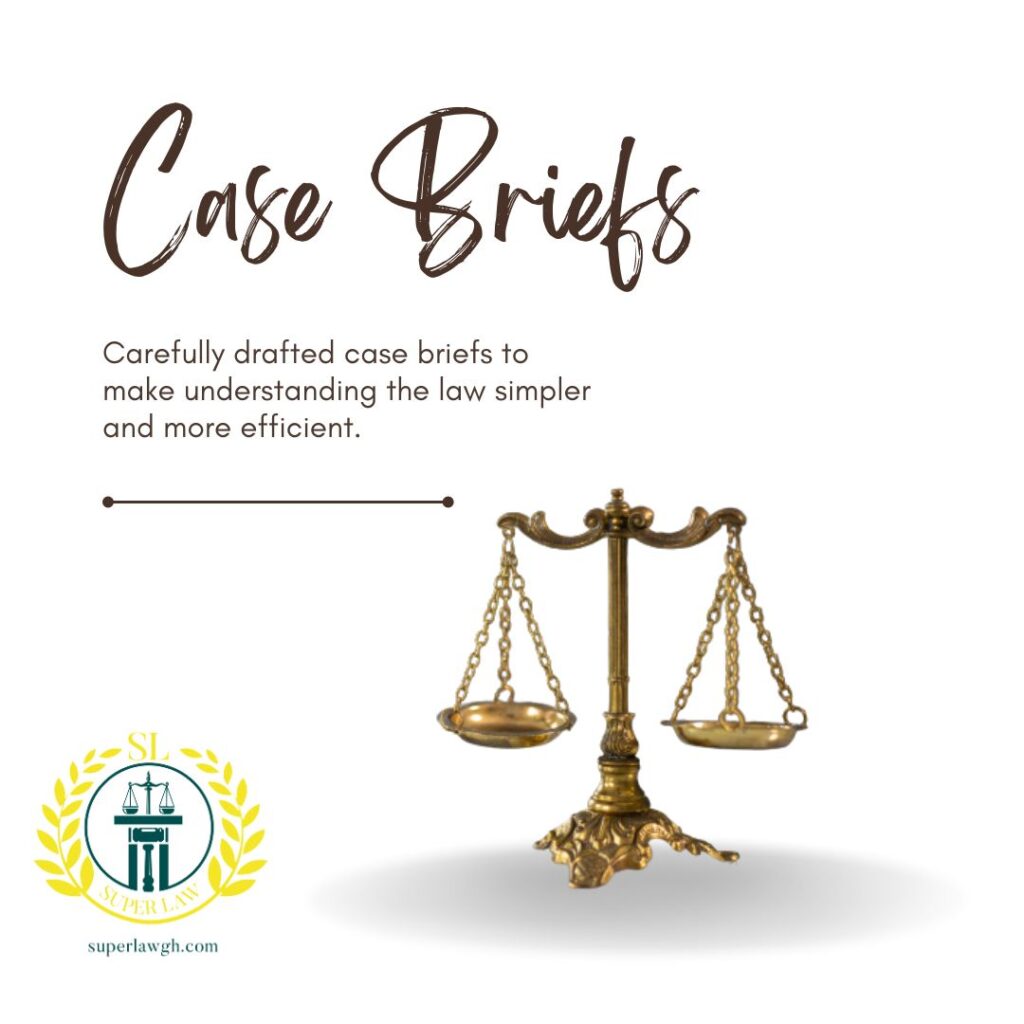Yaa Antwi v NTHC Civil Appeal NO. J4/12/2008
Supreme Court of Ghana
The plaintiff at one time worked for the defendant as head of its Legal Department. She received a letter from the defendant which content sought to give her the first opportunity to buy a house at $70,307, payment of which would be within 6 months. Because of how material the letter is to the case, it is provided in full here:
Ms. Yaa Antwi
NTHC Limited ACCRA
Dear Madam:
OFFER FOR SALE HOUSE NO. 4 PLATEAU CLOSE
EAST LEGON EXTENSION
The Board of Directors at the emergency Board meeting held on Friday, 31 December 2004 proposed to sell the Company’s houses being occupied by the Management Staff. In this regard, you are being given the first offer to purchase the above-mentioned house at the cost price of US $70,307 or its Cedi equivalent. Payment shall be within 6 months. If you are interested, you are to indicate, in writing, to the undersigned by Monday, 31 January 2005.
Yours faithfully,
Gladys A. Odoi (Ms)
Board Secretary
Cc Managing DirectorShe was to write back by a certain time if she was interested. She wrote back after a month, referencing the letter, and accepting to buy the house in the terms stated in the letter. She requested for bank accounts within which to make the payments.
There was a break in communications until 11 months later, the defendant wrote back, stating that the offer for the house had been withdrawn following extensive deliberations. A subsequent letter then requested her to vacate the building.
The issue was whether the exchange of letters had created a valid agreement.
The High Court concluded that the initial letter from the company was not an offer, but rather an invitation to treat for the plaintiff to make an offer. This conclusion was reversed at the Court of Appeal which held that the letter was an offer, as it did not make any enquiry, but had a clear price and payment schedule stated.
The Supreme Court affirmed the decision of the Court of Appeal – indicated that an offer must be definite and final, and not leave significant terms open for further negotiation. It distinguished an offer from an invitation to treat, stating that a valid offer could be turned into an agreement by mere acceptance and while an invitation to treat would not. It rejected the defendant’s assertion that their case was grounded on Gibson v Manchester City Council because unlike that case, where significant terms like the price were not laid out, in the instant case, all terms were clarified, with the exception of the mode of payment which was a subsidiary question. An evaluation of whether or not words constitute an offer requires an evaluation of the construction of the words and language.
The Court also dismissed the argument that the use of the words “proposed” by the defendants robbed the correspondence of the certainty it needed to be an offer, instead arguing that the next two sentences cemented its status as an offer, which was converted into a contract by the acceptance.
Consequently, the Court affirmed the grant of specific performance by the Court of Appeal, subject however to the payment of interest by the plaintiff in order not for her to unjustly enrich herself as the property had appreciated in value. The court granted this despite the fact the delay was due to the company’s neglect to provide the banking details because the grant of specific performance must not inflict hardship on the losing party.
Key Extract from the Judgement: Per Date Bah: Basically, an offer is an indication in words or by conduct by an offeror that he or she is prepared to be bound by a contract in the terms expressed in the offer, if the offeree communicates to the offeror his or her acceptance of those terms. Accordingly, the offer has to be definite and final and must not leave significant terms open for further negotiation.
By significant, we here mean terms that are essential to the bargain contemplated. It is important to emphasise the proposition that the mere acceptance of an offer is sufficient to turn the offer into a contract, if there is consideration for it, together with an intention to create legal relations.


